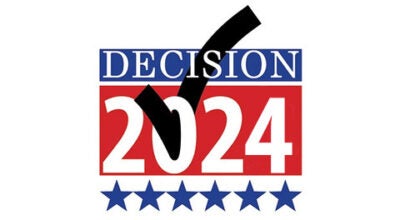Louisiana voters to decide on state amendments
Published 12:02 am Friday, November 2, 2012
VIDALIA — When Louisiana voters head to the polls Tuesday, they will not only be electing national leaders but will also be deciding if they will take on nine amendments to the state constitution.
Voters will also decide on a local option to limit the term of school board members.
Amendment No. 1
Amendment No. 1 seeks to protect the Medicaid Trust Fund from being accessed for funds when the state is seeking to balance the budget.
A vote for the amendment would bar the legislature from accessing the Medicaid Trust Fund for balanced budget purposes.
A vote against would maintain the status quo, which allows for such access.
Amendment No. 2
Amendment No. 2 would require that any new laws restricting gun rights be automatically subject to judicial review and would remove an existing line in the Constitution that allows the legislature to pass laws regulating the use of concealed weapons.
A vote for the amendment would effect the changes it proposes.
A vote against the amendment would maintain the status quo, including the right of the legislature to regulate concealed weapons.
Amendment No. 3
Amendment No. 3 seeks to require earlier filing for any bill that would affect public retirement systems. In addition to requiring that bills be filed a month earlier, the amendment would double the length of time for the public notice for prefiled retirement bills.
A vote for the amendment would effect its proposed changes.
A vote against would maintain the current filing and public notice protocols.
Amendment No. 4
Amendment No. 4 would allow higher homestead exemption claims for spouses of deceased veterans who had 100-percent service-connected disabilities regardless of if the exemption was claimed at the time of the spouse’s death.
A vote for the amendment would affect the change it seeks.
A vote against the amendment would not allow the living spouse to claim the higher exemption.
Amendment No. 5
Amendment No. 5 seeks to allow courts to decide if a public servant convicted of a felony associated with his or her office will be required to forfeit a portion of their public retirement benefits during sentencing.
A vote for the amendment would affect the change it seeks.
A vote against the amendment would keep the status quo, which would allow a public official convicted of a felony to keep all of his or her benefits aside from those included in court-ordered restitution.
Amendment No. 6
Amendment No. 6 would allow the City of New Iberia to grant exemptions for property taxes to any property annexed after Jan. 1, 2013.
A vote for the amendment would affect the change it seeks.
A vote against the amendment would not grant the city authority to exempt property taxes.
Amendment No. 7
Amendment No. 7 would adjust how the membership of the state’s constitutionally created boards — for example, the state Civil Service Commission — will be selected in light of the fact that Louisiana has one fewer Congressional district since the 2010 census. Membership on the boards is based on the number of Congressional districts.
A vote for the amendment would affect the change it seeks.
A vote against the amendment would not make the adjustment.
Amendment No. 8
Amendment No. 8 would allow the state Board of Commerce to grant limited property tax exemptions for certain non-manufacturing businesses.
A vote for the amendment would affect the change it seeks.
A vote against would maintain the status quo, which does not allow for the exemptions.
Amendment No. 9
Amendment No. 9 would require additional public notice, including extra advertisement, for crime prevention and security district bills. It would also require the notices to state if the collection of a parcel fee could be increased or imposed and what that fee’s maximum amount could be.
A vote for the bill would affect the change it seeks.
A vote against it would maintain the status quo.
Statewide school board local option
The school board local option would limit school board members to three consecutive four-year terms, beginning in elections after Jan 1. 2014.
A vote for the option would affect the change it seeks.
A vote against would maintain the status quo, which has no term limits for school board members.
Though the option is on the ballot statewide, it does not have to pass across the state. It will go into effect in school districts that pass it.





